Ever wondered why your fluffy friend nibbles or licks your hair? It can seem cute or quirky, even amusing at times, but is there a deeper reason?
Cats have a myriad of behaviors that leave us scratching our heads, but this particular one tends to be more common than you think.
In this article, we will explain the affectionate side of feline grooming, consider the possible stress indicators, and explore the curious habits of young cats.
Is it merely an odd display of affection, a sign of underlying stress, or a curious kitten growing into a habit?
You can also expect some practical advice. If your cat is showing a bit too much affection to your locks, we have solutions at hand. We'll discuss ways to manage this behavior, without compromising your bond with your beloved cat.
With useful tips and insights, you will be better equipped to handle this unusual habit and keep your cat's well-being in check.
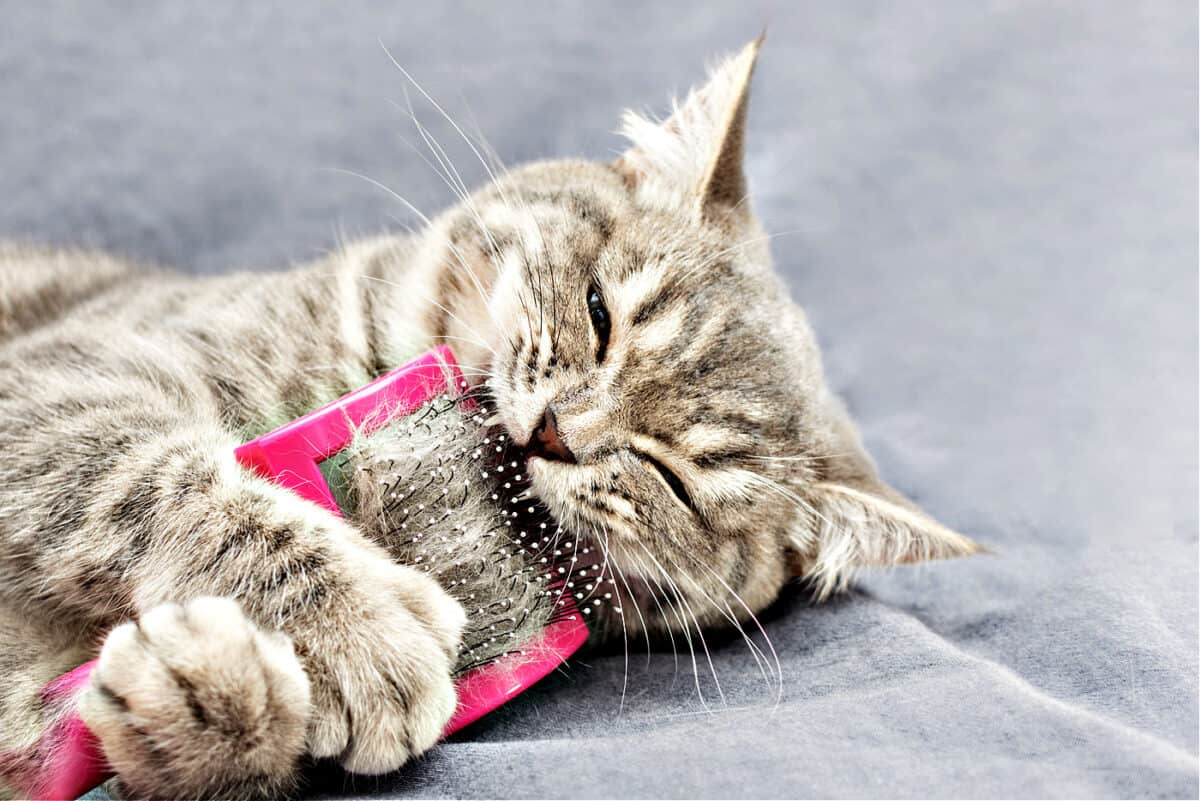
Your Cat's Hair Obsession: An Overview
The principal reason behind a cat's inclination to lick or chew their human's hair is affection. In the feline world, mutual grooming is a common practice used to signal family ties. If your cat is licking you, it's probably an expression of bonding and an illustration of their love.
Excessive grooming could be a sign of stress. If you notice an increase in grooming, including mutual grooming, try to see if there have been any changes in Kitty's life lately.
Now that you know a few reasons why a cat might eat or chew your hair let's discuss them in more detail. Additionally, we'll discuss ways to manage this behavior, ensuring it doesn't evolve into a problem.
Interestingly, not all cats display an interest in human hair, and this quirk can often emerge in young cats, developing into a peculiar habit over time.
But what determines which cats find human hair irresistible and which don't? The answer remains a mystery. Some cat enthusiasts humorously attribute this to the "barber's gene," although it's uncertain whether such a genetic predisposition exists.
To gain a better understanding of your cat's hair-chewing behavior, let's delve deeper into its potential causes. Up next, enjoy a lighthearted moment with this amusing video titled "Funny cat loves eating hair".
Hair-Licking: A Cat's Love Language
Cats are complex creatures, and one way they express their affection and bonding is through grooming. This behavior, known as mutual or allogrooming, is common among felines in multi-cat households.
It signifies a strong bond, much like the interactions between close human friends. So, when your cat grooms you, they're showing you're an integral part of their clan.
The science behind this lies in each cat's unique "scent signature." While our human senses may not detect these distinctive blends, they are a critical part of a cat's perception of their environment.
By grooming and rubbing against you, your cat is subtly marking you with their scent, essentially claiming you as their friend, a part of their inner circle. This social behavior is not generally a concern unless it leads to frequent hairball issues.
You can read more about the phenomenon here: Why Do Cats Groom Each Other? (The Answer Will Surprise You!)
This is by far the most common reason for your cat to be licking your hair.
SIGN UP FOR THECATSITE'S EMAIL UPDATES >
Grooming Overdrive: Is Stress the Culprit?
Sometimes, excessive grooming or licking can be an indication of stress.
While grooming a human or another cat isn't typically a sign of anxiety, a sudden uptick in frequency might be. So, how do you decipher if this behavior is stress-related? The key is to scrutinize any recent changes in your pet's environment or routine. Here are some typical examples.
Coping With A New Environment
A recent move can trigger an array of behavioral changes in your cat, including increased grooming or hair chewing. New surroundings can unsettle your cat, so your patience during the transition is vital.
Ensure your cat has familiar items from the old house, preferably those already imprinted with their scent, to make the new environment feel more like home.
Adjusting To A New Pet
A new pet could also unsettle your cat, causing them heightened stress levels. If you've recently introduced a new animal into your home, do so gradually. Keeping the pets separate initially and then slowly allowing them time together can prevent unnecessary stress for your furry family member.
There are numerous other potential stress triggers for cats. If you notice a shift in your cat's grooming habits, check out our comprehensive guide: Stress in Cats - The Ultimate Guide
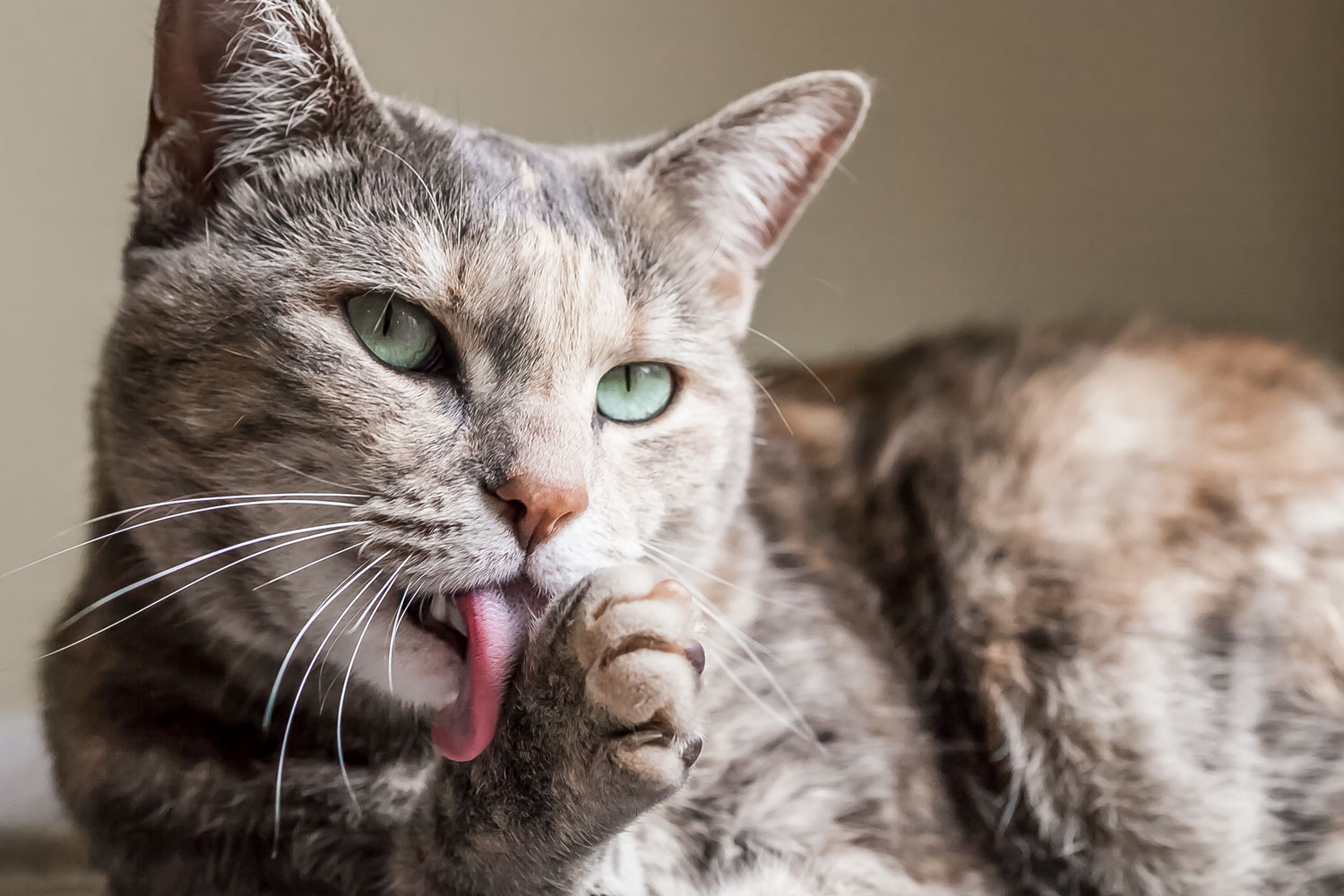
The Consequences Of Cats Eating Human Hair
Cats' tongues have a rough surface, which can easily trap human hair. Unlike a cat's fur, human hair is finer and longer, making it a challenge for your cat to dislodge it from their tongue. Consequently, they might accidentally ingest your hair.
Although human hair isn't necessarily harmful, it's indigestible for your feline friend. The hair usually passes intact through their digestive system, exiting in their feces, or occasionally emerging as part of a coughed-up hairball.
If your cat seems to be deliberately eating human hair, it's time for a chat with your veterinarian. Your pet could be exhibiting pica—a behavior where animals consume non-food substances. This could signify nutritional deficiencies or other underlying health issues.
How Do You Stop Your Cat From Attacking Your Hair?
Some cats like to play with hair rather than groom it. Kittens especially are notorious for turning anything into a game—and that can include your hair.
The problem is that kittens often act out "hunting" scenarios when they play. In those scenarios, your hair might become the prey, and your head becomes the hunting field. Ouch!
To get your cat to stop attacking your hair, provide them with a different outlet for their playful energy. Whenever the kitten gets to your head level and shows signs of aggression, redirect them to a toy and help them play with that.
Rod-like toys are perfect for distracting any kitten from your head:
Click Here To See These Cat Toys On Amazon
Make sure to read our article Playing With Your Cat: 10 Things You Need To Know, where you'll find tips and tricks for effective and fun play sessions with your cat.
In addition to distracting Kitty with a toy, check out your shampoo. Avoid using shampoo with mint, as catnip is in the mint family, potentially attracting the cat to your hair. If all else fails, you could tie your hair back into a bun so it's not attractive to the cat.
Why Do Cats Love Human Hair?
Cats don't so much love human hair as much as they love their human. Cats love to groom and love their humans. Additionally, human hair is something cats love to play with, especially long hair. It swings and sways like their favorite toys. It's an important part of kitty socializing—grooming their friends.

Why Cats May Chew Hair During Your Sleep
Being primarily nocturnal creatures, cats are often active when you're asleep. If your cat starts chewing your hair during these hours, it might be an attempt to wake you up for some entertainment—a gentle nudge to adjust to their schedule.
For advice on dealing with this behavior, see our article: How To Stop My Cat From Waking Me Up At Night (step-by-step Plan)
Why Does My Cat Bite My Hair After I Shower?
Your cat might take to biting your hair after a shower for several reasons.
Firstly, they could be trying to re-establish their scent on you, essentially undoing your shower's "erasure" of their marking efforts.
Secondly, your cat might be drawn to your shampoo's scent. As stated before, mint-scented shampoos could potentially attract your cat due to the family relation with catnip. Consider switching to a different fragrance to see if this changes their behavior.
Why Does My Cat Eat Hair Off The Floor?
If your cat is eating your hair or their fur off the floor, you should be concerned about the behavior. It's a good indication the cat has Pica, which we mentioned earlier.
Pica is the impulse to consume things that offer no nutritional value, such as hair, fingernails, paper, etc. It could indicate a nutritional deficiency.
Talking to your veterinarian is the best course of action. It may be that your cat just needs more fiber in their diet and all you'll have to do is provide them with their own little patch of grass.
Click Here For This Easy-To-Use Pet Grass Growing Kit On Amazon.
Putting An End To Hair Chewing
If your cat is merely chewing on your hair—without displaying playful aggression—then you could try and deal with the chewing itself.
Some kittens like to chew because it relieves the pain of their growing teeth. After a while, it may become a habit, staying with them through adulthood.
The first method to attempt to get your cat to stop chewing your hair is to deflect the behavior. Move away from your cat and offer a toy they are allowed to play with instead. Like this rope-like toy, complete with infused catnip:
Click Here To See This Rope Toy Infused With Catnip Here
Continually doing this should stop the unwanted behavior over time. Combine providing an alternative with not allowing the cat to chew your hair. Whenever they go for your hair, simply gently remove them. No need to reprimand them or shout at them.
Any form of punishment could easily backfire on a cat, and you'll end up with a hostile and stressed-out cat.
If none of this works, be sure to get your cat to the vet to rule out pica or other health issues.
Wrapping Up The Cat Chewing Hair Obsession
The motivations behind cats' tendencies to chew or eat human hair can vary widely. Regardless, the methods to deter such behaviors are relatively consistent.
Although usually harmless, it's essential to remain vigilant for any changes in your cat's conduct or health. Like you, we aspire for your feline companion to enjoy a long, wholesome life.
As always, you're more than welcome to join our forums and post in the cat behavior forum about your problem. Our members are there to try and help you out.
SIGN UP FOR THECATSITE'S EMAIL UPDATES >
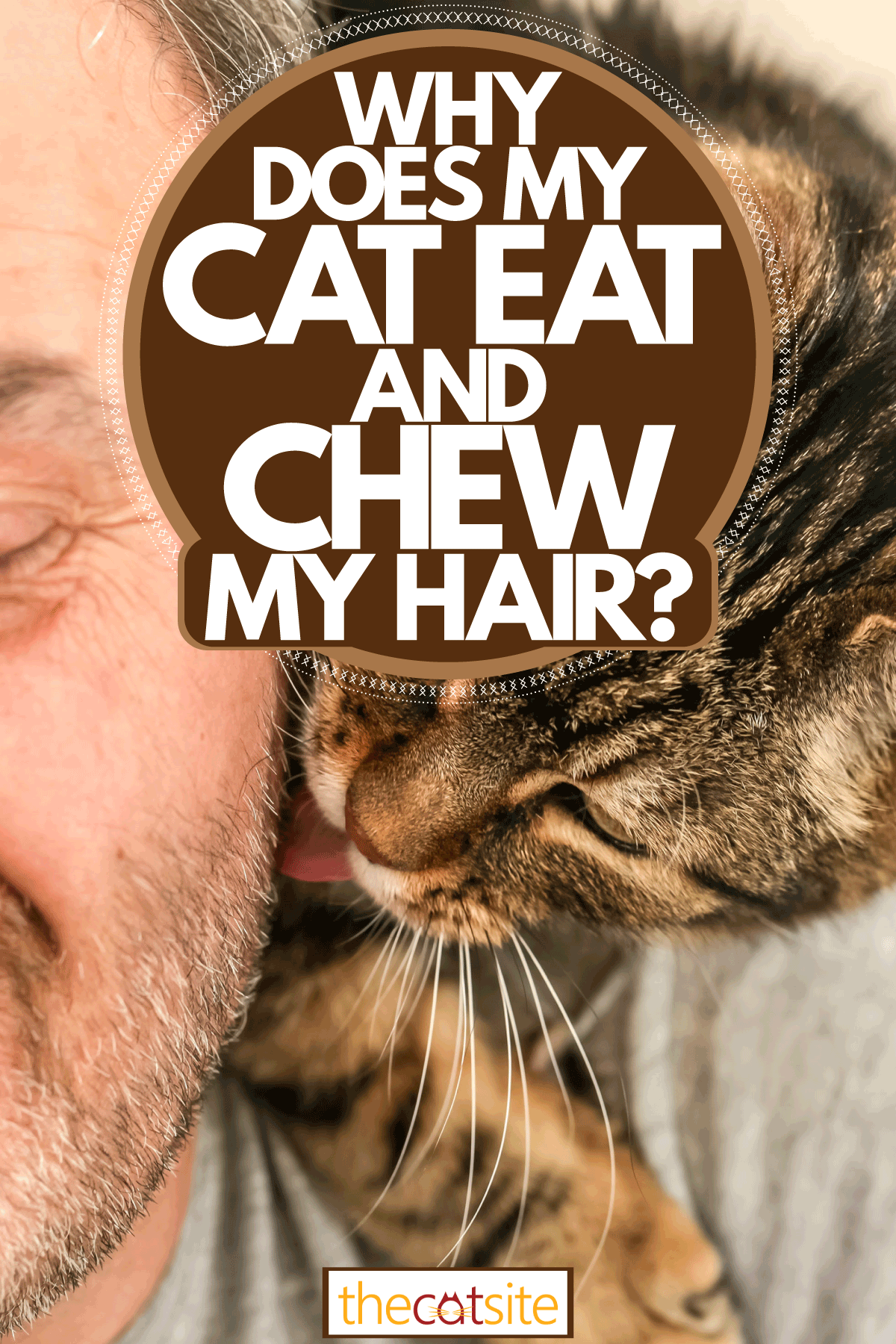
Note: We may get commissions for purchases made through links on this page.




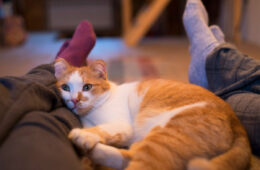
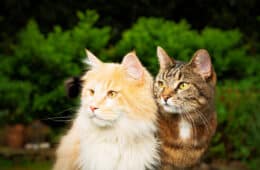
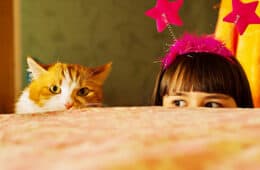
4 comments on “Why Do Cats Lick, Chew or Eat Human Hair?”